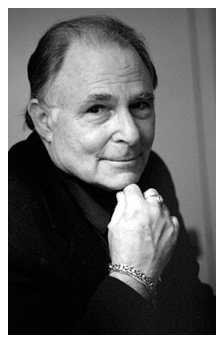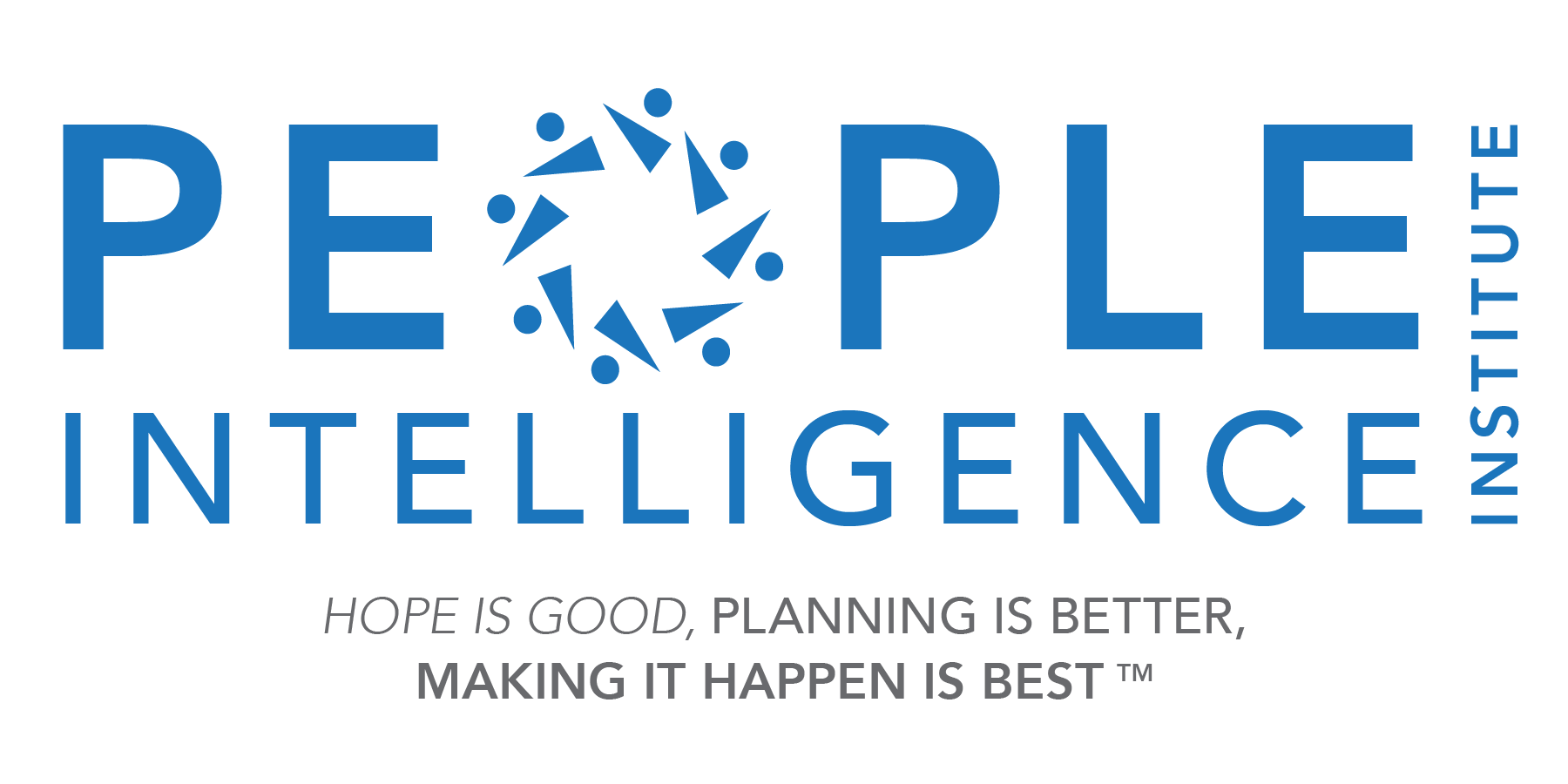"This course has helped train my eye and my mind to see more emotions in others, and as a result, have more successful interactions with others when they are emotional. I am more likely to notice things earlier, before escalation, when the potential to make better choices is stronger."
Read More This week we thought we would share with you the commencement speech that Paul Ekman, PhD., gave to the graduating students at Alliant University last June. In this short but powerful speech, Dr. Ekman shares his stance on trust - we all have a choice whether to trust or distrust, both carry a risk but one offers more happiness and even a longer life span. And, Dr. Ekman discusses the very important gap in our emotional response system between impulse and action that, if managed, can turn a regrettable emotional reaction to one that is constructive and beneficial. If you have pondered your position on trust or wondered how you can change how you act or what you do when you become emotional - read on as there are great words of wisdom imbedded in this speech.
This week we thought we would share with you the commencement speech that Paul Ekman, PhD., gave to the graduating students at Alliant University last June. In this short but powerful speech, Dr. Ekman shares his stance on trust - we all have a choice whether to trust or distrust, both carry a risk but one offers more happiness and even a longer life span. And, Dr. Ekman discusses the very important gap in our emotional response system between impulse and action that, if managed, can turn a regrettable emotional reaction to one that is constructive and beneficial. If you have pondered your position on trust or wondered how you can change how you act or what you do when you become emotional - read on as there are great words of wisdom imbedded in this speech.
"Let me add my congratulations for what you have achieved. It is a major milestone, perhaps the largest milestone in your work life. I passed such milestone in 1958, when I received my PhD in clinical psychology from Adelphi University. Looking back over 55 years I have thought about what I can tell you that I would have wanted to hear when I was in your shoes, at the beginning not the end of a career.
When I got my PhD I would never have predicted I would become a researcher rather than a private practitioner. Like many if not most of you, I wanted to be of help to a world in crisis, to help the many people suffering psychologically. Through a series of accidents I found that I could achieve that goal - relieving psychological suffering - through research more effectively than I could through practice. It was a better use of skills I didn't know I had, much to my surprise. I will return to this issue near the end of my talk - be open to surprises, surprises you discover about yourself.
I want to pass on to you some lessons I learned from the two research areas I spent my life studying - emotion and deception. These are lessons that don't appear in the journal articles or books, lessons about living your life. First a lesson about lying and truthfulness.
You have a choice which I hope you will make deliberately, consciously. The choice is what stance to take in your life about trust, in both your professional and your personal life. Should your stance be to trust that people mean what they say, or should you be more cautiously suspicious of what people say? Each stance has an attendant risk. I urge you to take the stance of trusting people whether they are friends, lovers, or patients. (Hopefully not all three at the same time in the same person). If your default is to trust, to take people at their word, even though we all know that anyone can make nearly anything up, you will be happier and probably live longer. But you will be taking the risk of being bamboozled. You will be a sucker for anyone who wants to exploit you.
You can avoid that unpleasant outcome by being distrustful and suspicious of everyone. You will be less happy, your life may be a bit shorter, and you take a different risk... you risk disbelieving a truthful person. You will have few friends, and lead a more guarded life. Unless you are working in law enforcement, or a related field, risk being misled, trust people. Even those in law enforcement should adopt that stance in their personal life.
My second area of research started with the facial expressions of emotion.
The evidence I found in the highlands of New Guinea helped to establish the universality of expression - all peoples share the same facial expressions of anger, fear, sadness, disgust, surprise, enjoyment and contempt. Darwin predicted it, Margaret Mead couldn't believe it, and the Dalai Lama rejoices in this common link between all peoples. And yet we don't all experience these seven emotions the same way... there are differences in both the hardware and the software, if I can use that metaphor, for how emotions play out in each of us.
When people find out I study facial expressions of emotion, they worry I can read their thoughts, know their secrets. Once reassured that I can only read their feelings, even the feelings they are trying to hide (but I don't mention that) I get asked two questions: How can I change what I become emotional about? And... How can I change what I do, how I act when I am emotional?
It isn't easy to do either, nature doesn't want you to be consciously mucking around, choosing when to become emotional, or how to act when you are in the grip of an emotion. The emotion system evolved to deal with problems recognized and acted upon in an instant without conscious thought. Consider for a moment what would happen if you had to think what to do in order to avoid a near miss car accident, the current equivalent of the sabre tooth tiger. Consciousness, consideration, choice comes in usually late in an emotional episode, or after it is over. But there are work-arounds!
My last psychotherapy supervisor Frank Gorman at what was then called the Langley Porter Clinic (now Neuropsychiatric Institute), told me in 1957...'Paul if you can increase the gap between impulse and action you will have helped your patients enormously.' He should have added: for some people that gap is pretty wide, so it will be easy for them to learn how to recognize the impulse when it arises, decide whether to engage, and if so how to engage emotionally. While for others that gap is pretty small, it is very hard for them to become aware that an impulse to act emotionally has begun.
You already know which you are... a slow burner or a hothead, and I don't mean just about anger. If you are slow to anger my research has shown you are probably slow to get afraid, slow to become sad. And if you are fast to anger, you experience those other emotions very quickly. That is part of what I am calling your emotional profile.
All of us have emotional episodes in which we regret how we acted. Step 1 in the workaround is to make a list of those regrettable episodes; write them down in a diary every time one happens. At the end of a month or two read them through and see what is the common thread, what is the trigger that sets off regrettable episodes. There will be one. You need to find it, and once you do you can anticipate when one is about to beset you and prepare yourself. A totally different approach which can help increase the gap between impulse and action is to regularly adopt a contemplative practice for 20-30 minutes every day. It is a lot of work, but it does work, there is increasing research evidence showing the benefits of meditation.
The well-known Israeli novelist Amos Oz in his autobiography wrote about a lesson he learned from his aunt which I want to pass on to you. We are all dealt a different hand of cards. You didn't choose the hand that was dealt to you, you didn't choose your parents, your genes, how you were brought up, what you learned and didn't learn. That was all dealt. Find out what is in your hand: find the strengths and the weaknesses. That is step one. The wise aunt told her nephew some people play a terrible hand very well, and others play a great hand badly. It is up to you; you didn't deal the hand but you play it. At your age believe that you have a choice how you play it. Later in life you will find out there wasn't as much choice as you thought there was, circumstance and luck play a role. For now, learn what is in your hand and be great player of the hand you were dealt.
And remember why you obtained your education - never lose sight of how you can make a difference in the lives of others.
Be open to surprises; let accidents, ones of good fortune, especially, change your life. Find out what your best skills are... you probably don't yet know that but you will be finding out in the next few years. You are skilled as a student... think of how many years you have played that role. Now that role is over.
Act as if you are in complete control.
Play the deck you were given well. Know what that hand is."
(Dr Paul Ekman - June 2013).


